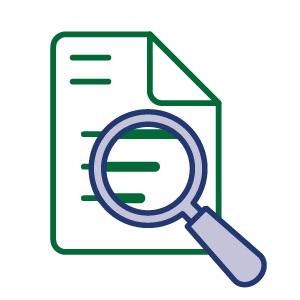Eligibility for Financial Aid
Be Sure You Know the Rules
The federal government, which supplies most of the money for financial aid, has some rules about who can receive it. These rules generally apply to grants, loans, and work-study opportunities.
The most important federal eligibility rules require that you:
- Demonstrate financial need (for most programs) through your Free Application for Federal Student Aid.
- Be a U.S. citizen or an eligible non-citizen with a valid Social Security number. The most common type of eligible non-citizen is a permanent resident with a “green card,” although some others also are eligible.
- Have a high school diploma, GED certificate, or equivalent home-schooling credential.
- Be enrolled or accepted for enrollment in an eligible degree or certificate program.
- Be enrolled at least half-time (for most programs).
- Make Satisfactory Academic Progress toward your degree or certificate.
- Use financial aid only for educational expenses, such as tuition, fees, and books.
- Financial aid only pays for classes that fall within your program of study.
A complete list of requirements is available from the U.S. Department of Education.
How to Maintain Your Financial Aid Eligibility
Once you’ve received financial aid, be sure to maintain your eligibility throughout the school year and in ensuing years that you want to receive aid. To remain eligible, you must:
- Make Satisfactory Academic Progress toward your degree or certificate.
- Submit a new Free Application for Federal Student Aid every year that you want aid.
- Continue to meet the basic eligibility criteria listed above.
Making any changes in your class schedule or enrollment status has the potential to affect your current and future eligibility for financial aid. This makes it essential for you to talk with the Financial Aid office before dropping a class or withdrawing from school.
- CAR.NRT.CA Body Repair Technician Assistant
- CAR.PRT.CA Collision Auto Repair-Detailer/Painter Assistant
- CRJ.OPA.CA Criminal Justice Police Academy
- ECE.ITT.CA Early Childhood Education Lead Infant and Toddler Teacher
- ECE.PST.CA Early Childhood Education Lead Preschool Teacher
- ECE.SAT.CA Early Childhood Education Lead School Age Teacher Site Supervisor
- EMS.EMT.CA Emergency Medical Services-EMT
- GUE Guest Student
- HER.CT Heavy Equipment Repair
- HSD High School Dual Enrolled
- HSE High School Equivalency
- HSE.ACE High School Equivalency- ACE
- HSE.OTC High School Equivalency - OTC
- HSG High School Guest
- MDA.MOA.CA Medical Office Admin.
- MDA.PHT.CA Medical Assisting - Phlebotomy
- NDS.NON Non Degree Seeking
- ODA.CA Oakland Dispatch Academy Certificate of Achievement
- OPA.RSV.CA Oakland Police Academy Reserve Certificate of Achievement
- ROB.PCT.CA Programmable Controllers
- TRS.CT Transfer Studies Certificate
- TRS.ONL.CT Transfer Studies Certificate - Online
- UND.NON Undecided
- WEL.LV1.CA Welding/Fabrication Technology - Level 1 Fundamentals

Essentials
- A few short-term programs at OCC aren’t eligible for financial aid. They typically consist of only a few classes and result in a Certificate of Achievement.
- Guest students, high school dual-enrolled students, and students who aren’t seeking or haven’t chosen a degree or certificate aren’t eligible for federal financial aid. However, guest students may be eligible for state aid.
- Undocumented students are generally not eligible for federal financial aid, although they may qualify for other assistance. However, undocumented students who have Deferred Action for Childhood Arrivals (DACA) status and Social Security numbers are eligible for federal aid. For more information, see Financial Aid and Undocumented Students (PDF) from the U.S. Department of Education.
- Students who are homeless or at risk of becoming homeless are eligible for federal financial aid. For more information, see Federal Student Aid and Homeless Youth from the U.S. Department of Education.
- Having a drug conviction no longer disqualifies you from receiving federal financial aid.
- You’re eligible for federal financial aid if you’re on probation or have been paroled. For more information, see Federal Student Aid for Students in Adult Correctional and Juvenile Justice Facilities from the U.S. Department of Education.
- Males who are 18 to 25 no longer need to register with the U.S. Selective Service to be eligible for federal aid.
Contact Information
Financial Aid General Questions & Information
Phone: (248) 341-2240
Financial Aid Documents
Fax: (248) 341-2250
Service Hours:
- Monday - Friday | 8:30 a.m. - 5 p.m.
Oakland Community College
Attn: Financial Aid Office, B-242
2900 Featherstone Road
Auburn Hills, MI 48326